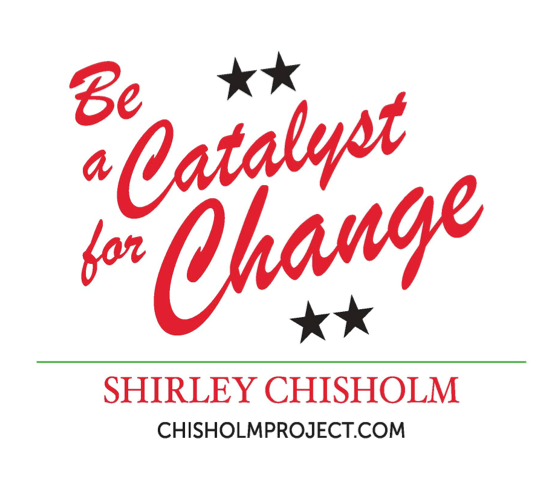
The fight must continue. It must continue, because in a different kind of society, Breonna Taylor would have celebrated her 27th birthday with her family last Friday. The Louisville police would not have come armed to her doorstep with a “no-knock” warrant and weapons of war. They would not have invaded her home while she was sleeping. They would not have opened fire. She would be alive today. The Shirley Chisholm Project on Brooklyn Women’s activism stands in solidarity with her family, the mothers of the #SayHerName network and a myriad of organizations committed to intersectional work for Black women.
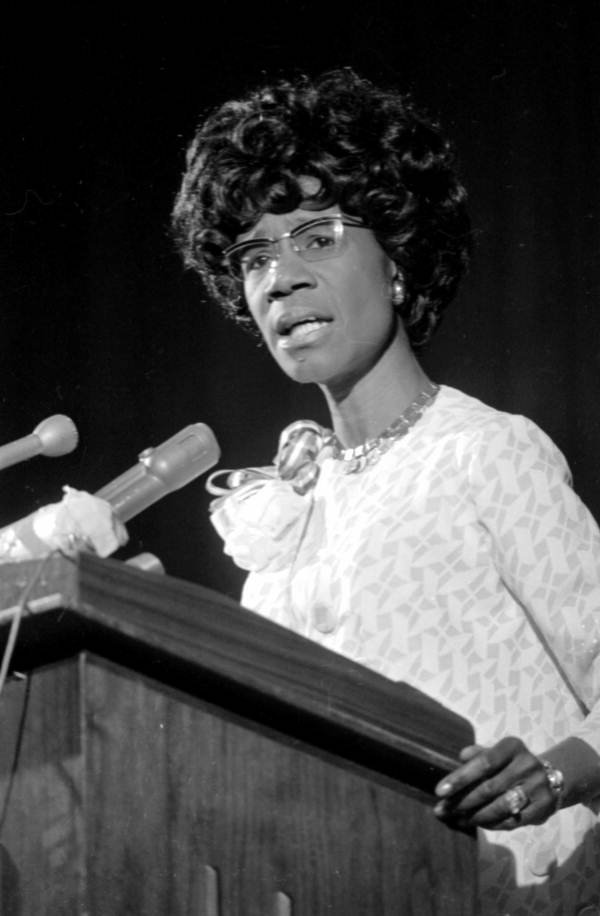 It is disconcerting that 52 years after Chisholm’s election to Congress, Black women still are not safe in the comfort of their homes nor are they safe in the streets from harassment and assaults by militarized agents of the state. Instead, state and local police routinely murder Black people, with few legal mechanisms for justice available when a life like Breonna’s is taken away. And to add to this tragedy, the violence inflicted against Black women that exists in every level of government and across multiple institutions is largely overlooked. Even as Breonna’s family and the Black Louisville community struggles to make her murderers accountable, the call for justice for Breonna has been slow to gain widespread attention from national media outlets.
It is disconcerting that 52 years after Chisholm’s election to Congress, Black women still are not safe in the comfort of their homes nor are they safe in the streets from harassment and assaults by militarized agents of the state. Instead, state and local police routinely murder Black people, with few legal mechanisms for justice available when a life like Breonna’s is taken away. And to add to this tragedy, the violence inflicted against Black women that exists in every level of government and across multiple institutions is largely overlooked. Even as Breonna’s family and the Black Louisville community struggles to make her murderers accountable, the call for justice for Breonna has been slow to gain widespread attention from national media outlets.

Breonna Taylor’s life was taken on March 13th. Today, four months later, her murderers have yet to be arrested and are still employed by the LMPD. Moreover, since the raid on Breonna’s home, a number of women have revealed that one of her murderers, Brett Hankison, is also a sexual predator. Every day that passes and every detail that emerges in this case reinforces the importance of the fight to protect the lives of Black women and girls.
Ending the kinds of injustices that took Breonna’s life was at the core of Shirley Chisholm’s work. Our programming and media outreach at the Chisholm Project highlights the ongoing history of that work. Over the years we have held public conferences and forums in addition to our most coveted event: Chisholm Day at Brooklyn College. Past Chisholm Day events have included: “Black Lives Matter: A Conversation on State Violence in the Wake of Uprisings in Ferguson”, “The State of Black Women’s Politics”, “Black Freedom Dreams and the Black Freedom Movement”, “The Fight Against Defunding Public Education” and our recent conversation with poet-activist Sonia Sanchez on Black freedom and justice during the Trump Era. In 1968, Chisholm governed and served under what she categorized as one of the most totalitarian and racist presidential administrations in American history. Now, we find ourselves revisiting Chisholm’s words and strategies on how to confront another president and administration who, like Nixon, aligns with a repressive “Law and Order” platform.
During her presidential campaign Shirley Chisholm issued a manifesto, calling for an overhaul of law enforcement. She demanded reform in policing, in prisons, in the courts, in our approach to civil rights, human rights and first-amendment rights. And she condemned the War On Drugs—a set of policies that is directly linked to the police break-ins in Black and brown communities. Chisholm writes:
“This Administration has virtually declared war on blacks, non-whites, and the young in this vitally sensitive area of civil rights…Rampaging police brutality and summary justice in the black community, and evidence of widespread police corruption, as in New York, have for too long characterized police work. Excessive police violence, discriminatory treatment of Chicano juveniles, biased enforcement of motor vehicle regulations, racial discourtesies, the excessive use of “stop and frisk” laws are all various forms of police harassment and intimidation common to the poor and non-white communities. Vigilante squads and right-wing political repression have sprouted from coast-to-coast. The Administration has shown its lack of concern for this intolerable abuse of police power by giving more arms to police forces and by promoting Orwellian police tactics such as “No-Knock,” which strikes at the fundamental right of every American to be secure in his home.”
Chisholm’s understanding of policing and need for reform was informed by the police state that existed in her very own district and city.
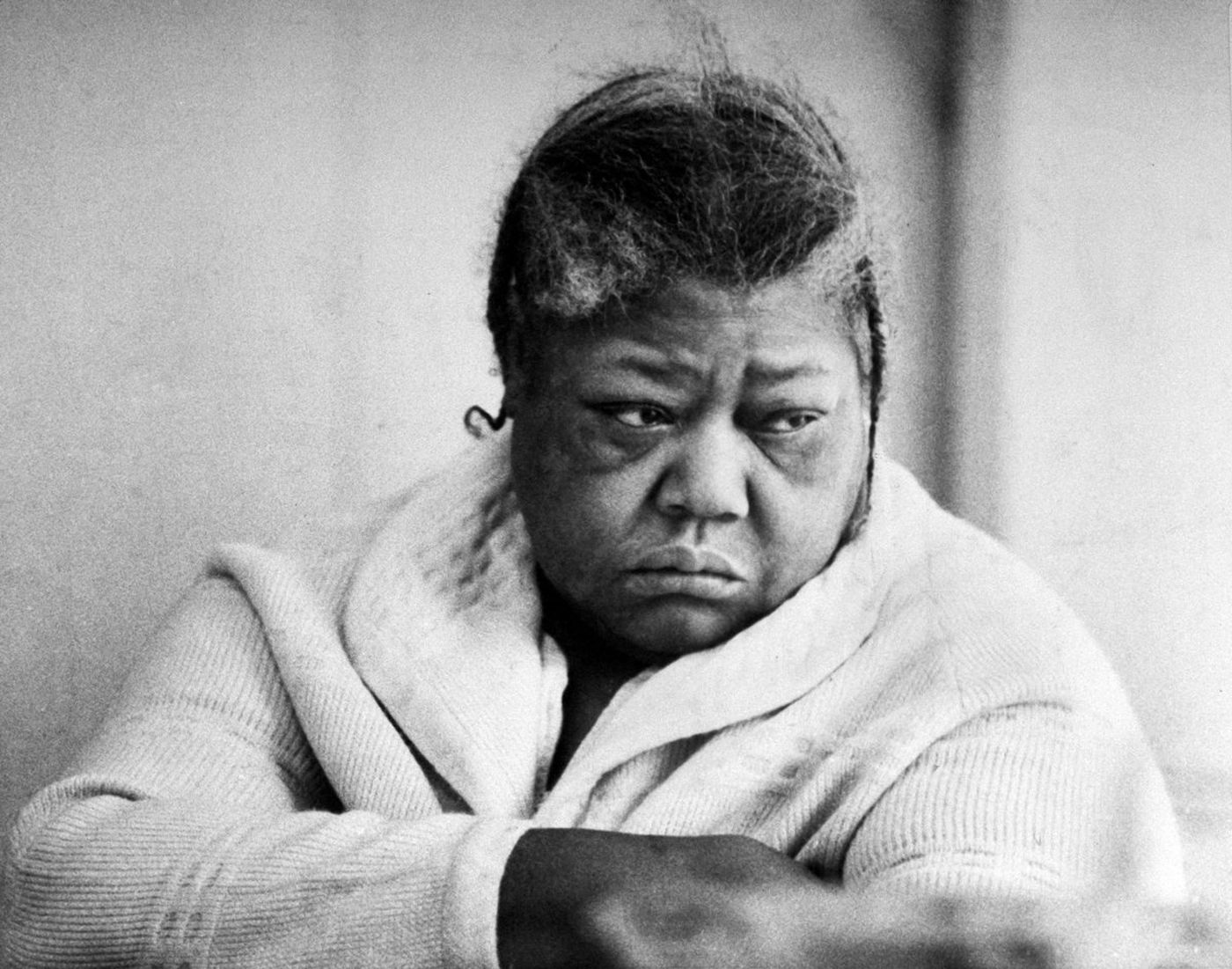 Chisholm left Congress a year before 66 year-old Eleanor Bumpurs was murdered by the NYPD in her Bronx home in 1984. Her eviction and non-payment of rent could have been addressed with any number of non-violent interventions. The NYPD was well aware of her vulnerable mental condition and could have coordinated a humane and peaceful resolution. Instead, their response was to enter her home with a shotgun.
Chisholm left Congress a year before 66 year-old Eleanor Bumpurs was murdered by the NYPD in her Bronx home in 1984. Her eviction and non-payment of rent could have been addressed with any number of non-violent interventions. The NYPD was well aware of her vulnerable mental condition and could have coordinated a humane and peaceful resolution. Instead, their response was to enter her home with a shotgun.
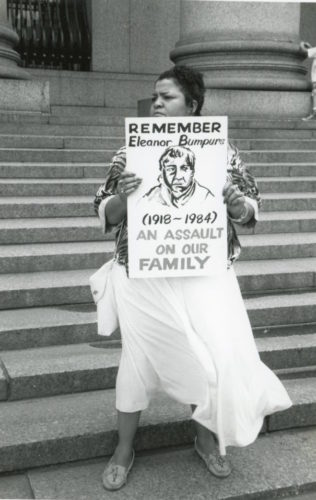
After the murder, the NYPD and other city officials promised “reform”. They promised to update their protocols in dealing with elderly and mentally ill citizens. But what little reforms were instituted did nothing to help another Bronx resident who was murdered under strikingly similar circumstances.
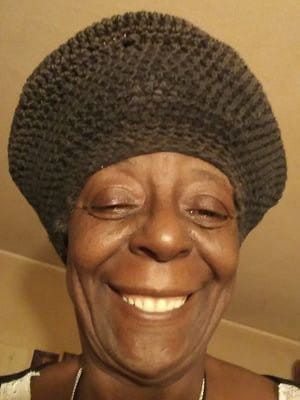
Eerily similar to the Bumpers case, Sgt. Hugh Barry murdered 66 year-old Deborah Danner in her Bronx home in October 2016, who was in conversation with her healthcare provider. Despite knowledge of her mental illness she was pursued and killed by the police.

In Harlem, NYPD officers broke into the home of Alberta Spruill, ignited a “flash grenade” and handcuffed her. The NYPD broke into the wrong house. The shock sent her into cardiac arrest. She died that day in 2003 at the age of 57.
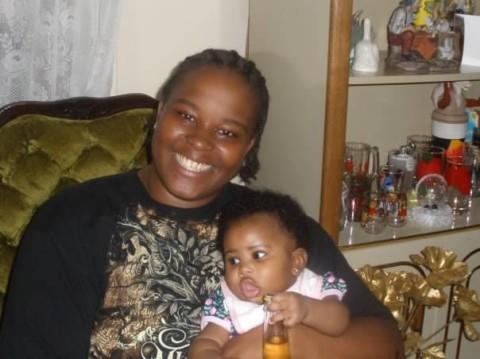
In June 2012 in East Flatbush, Shantel Davis was killed by NYPD officer Phil Atkins. She was unarmed and pleading with him not to kill her when Atkins, gun drawn, reached into her car to force her out of the vehicle and subsequently shot her. The following year, the NYPD took the life of another East Flatbush resident, a 16-year old boy by the name of Kimani Gray.
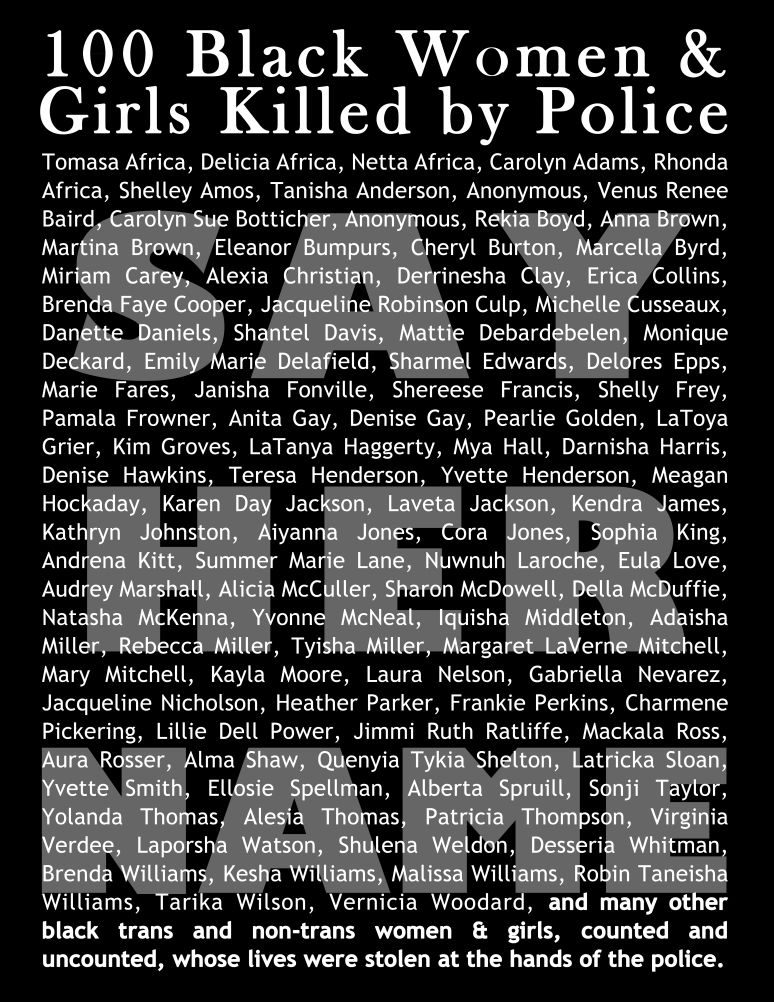
[Pictured Above: an incomplete list of Black women murdered by police throughout the country, including New York. This graphic was originally published in Invisible No More: Police Violence Against Black Women and Women of Color (2017)].
What is abundantly clear from a review of these cases is that the Black women who were murdered by agents of the state were the victims of other forms of institutional discrimination and failure. Their deaths point to failures in the medical and mental health systems, in housing policy, in policies with regards to elder care and the inadequacies of law enforcement in non-violent incidents. We must be aware of the countless ways the state invades people in the domestic sphere.
Living in the communities in Brooklyn, Bronx, Harlem and Queens, we know there are countless other faces, names and stories that go unknown to many outside these communities. Elevating the stories of Black women and girls alongside the Black men ensures that everyone receives justice. Black men and women both are victims of similar kinds of state brutality—high levels of incarceration, profiling, police violence— and simultaneously, they experience gender-specific manifestations of this crisis. As activist Andrea Ritchie recently said, drawing attention to Breonna Taylor in a Black Lives Matter rally, “We’re not trying to compete with Floyd’s story, but to complete the story.” Without a complete story of state violence, complete liberation for black communities that are affected is impossible. Each individual case, each individual call for justice, is connected to other cases and entire communities who are impacted by this crisis.
While the media is often drawn only to the spectacle of violence against Black people, we must acknowledge that those who are killed in the most visible and egregious kind of brutality are just a part of the larger proportion of cases. More often than not, Black people are murdered and abused by the state in secrecy. We cannot fail to see how our most vulnerable populations are subjected to violence in our most private spaces.
Shirley Chisholm told a crowd in 1973 that she fought “for an America that does not yet exist in time and space.“ Her love was for a different kind of society —and it was a condemnation of the world as it currently exists. It was a progressive and visionary love that was born out of an understanding that what we do today can set the stage for years to come. What we do today can help to preserve the people whose names and stories that are not widely known but whose lives matter nonetheless.
In a different kind of America, that does not exist, most of these women and girls we’ve mentioned today would still be alive. At the Chisholm Project, we suggest the following national and local actions that we can take.
ACTION STEPS:
- We call for the support of the demands from the mothers of the national #SayHerName network. Amongst these demands is the firing and arrest of the Johnathan Mattingly, Brett Hankison and Miles Cosgrove, police officers who murdered Breonna Taylor.
- Ensure that every analysis about the impact of state violence on Black communities incorporates Black women and girls (which includes Black transgender women /girls and black gender non- conforming individuals). Any account that excludes Black women and girls perpetuates the illusion that state violence does not affect their lives. We know it does. Furthermore, such accounts overlook the sexual violence and terror that police inflict on civilians with Black women being especially vulnerable.
- To address the murders of mentally ill Black women by the New York Police department we must call for both resources and transformative change that addresses mental health solutions rather than police enforcement.
- Call on Mayor DeBlasio and Governor Cuomo to cut budgets to New York State and New York City police departments and reallocate those funds to assist black and brown communities. In particular, reallocated funds should go to programs that address housing, unemployment, food insecurity, domestic violence and abuse and health disparities for Black women and girls. These groups are significantly vulnerable due to cuts around COVID-19.
- Contact your state officials to implore Governor Cuomo to increase funding for the “Search for Education, Elevation and Knowledge” (SEEK) Program. SEEK was sponsored by Shirley Chisholm and Percy Sutton. It allows low-income students to enroll in CUNY 4-year colleges and receive academic support to ensure their success. Additionally, implore state officials to increase The New York State Tuition Assistance Program (TAP) funding for students. Reject Cuomo’s continual efforts to disinvest in CUNY. These cuts in funding not only disparately impacts its black and brown student population–they also lead to the decline in Black and Latinx faculty, especially those located in Africana/Black and Latinx departments that are understaffed and underfunded.
State violence against Black women and girls is a problem that unites cities across this nation. As a crisis that has plagued Black communities for decades, it also unites us across time. But at the Chisholm Project, we believe it is also possible to be united in taking action!
And amidst widespread conversations on the possibilities of defunding of police forces and prison abolition, we invite you to watch Dr. Zinga Fraser’s recent interview where she describes how our budgets, our national priorities, and our society can be re-organized. In it, she argues that these structural transformations are possible only alongside “a reckoning on white supremacy” in America.
FOR MORE INFO IN THE COMING WEEKS FOLLOW THE CHISHOLM PROJECT AT:
Website: www.chisholmproject.com / Twitter: @chisholmproject / Facebook: @chisholmproject / Instagram: @thechisholmproject
AND OUR DIRECTOR:
Twitter: @FraserZinga / Facebook: @zingafraserphd